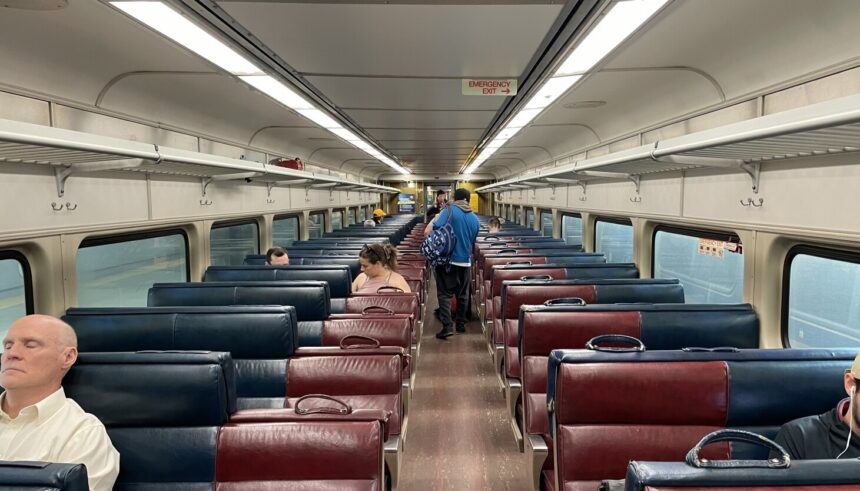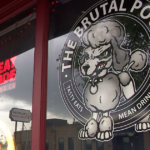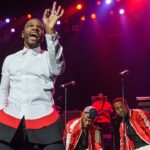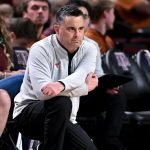BOSTON — They call the L the “T” here, and, punster that I am, my first thought was that both cities should join forces with someplace calling its train line the “B” and form a sandwich.
Sorry. But I’m in a good mood, almost giddy, having navigated a challenging journey via public transportation from Boston Logan Airport to Boxborough, a suburb about 30 miles away. Densely forested, it makes Northbrook look like the moon.
“Don’t be cheap,” my wife advised, urging me to take an Uber, which would cost $72, and take 90 minutes in nightmarish Boston traffic. The T costs $2.40, for starters, though unlike Chicago it charges more depending on how far you go. The Kingston Trio wrote a song about it.
So, the train. But how? At first, Google Maps balked.
“Sorry, we could not calculate transit directions from Boston Logan International Airport to …” and here it gave the address of the cousin I’m visiting.
Undeterred, I did that thinking trick machines still haven’t mastered, studying a map of the Massachusetts Bay Transportation Authority system. OK, I couldn’t get directly to Boxborough. But the Fitchburg line stops at South Acton. Four miles from my goal. That would do.
Yes, I’d have to take a bus, three trains and an Uber for that last leg. But heck, I wasn’t in a rush. The purpose of my visit was to hang with my cousin, who’s fighting kidney disease. He could use some company, though a fellow really must be in a bad way if he is expecting me to cheer him up. That’s like throwing your kid’s birthday party at the Holocaust Museum.
Taking the T was worth it just to realize the powers that be in Boston, despite representing a metropolis founded in 1630, couldn’t manage to run the train all the way to the airport. It stops 1,000 yards away. In Boston’s defense, Mayor Michelle Wu makes a habit of joining Bostonians on their daily commutes to see for herself what’s happening. Can’t imagine Brandon Johnson doing that. He’s studying the inside of the basket he’s hiding under.
I got off the plane, jammed onto the Silver Line 1 bus, and was on my way. Ten minutes later, we were at the Blue Line.
“Which direction to the Old State House?” I asked a guy on the platform. Of course the other side, and the train was now arriving. I bolted up the stairs across the tracks and just made an incoming train.
See, that’s the great thing about public transportation. I was in no rush whatsoever, provided I arrived in time to drive my cousin to dialysis the next afternoon. But suddenly I’m Ethan Hunt racing against the clock through exotic train stations.
Blue Line to Orange Line. Another race up escalators and down causeways. I got to the 2:30 to Wachusett — pronounced “Wa-chew-seth” — just in time to see it pull away.
Adapt. Overcome. I grabbed a chia pudding for lunch, then took in my surroundings. Over the door to the platforms is a huge slogan, “PERSISTENCE WILL TAKE YOU PLACES.” An odd motto for public transportation, almost, “WE DON’T MAKE IT EASY, BUT IF YOU TRY, HARD, YOU CAN GET WHERE YOU’RE GOING.” I looked closer and saw it was for a financial services company, which made a little more sense. Still, it’s amazing what you can do if you are willing to put in effort and time.
I’m fairly fond of Metra — the conductors look like the national touring company of “Thomas the Tank Engine.” In Boston, the MBTA conductor looked like he’d just spent the morning tearing apart a V-8 engine.
Metra cars are clean and run frequently enough. But after riding the Boston commuter train, riding Metra will feel like spooning caviar on the Orient Express. The Boston cars are a foot wider than Metra’s, with these weird half-seats. All the two-tone faux leather coverings were worn and slashed and grimy. If you went to hell by train rather than boat, this is the car you’d ride in.
The Fitchburg line went through Waltham, once known for watches, and Concord, once known as the birthplace of democracy long ago, forged by a people once known for loving freedom. It deposited me at South Acton, where for $13 an Uber arrived — the silent driver playing tunes by Ghanaian singer Daddy Lumba. The words were in Akan, so I couldn’t understand them. But I got a sense of their spirit, their bouncy beat, and the whole experience made me realize, yet again: The journey is the destination.















